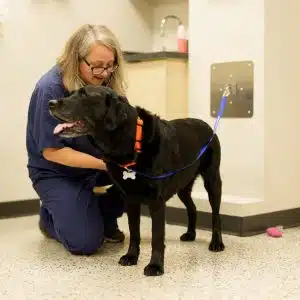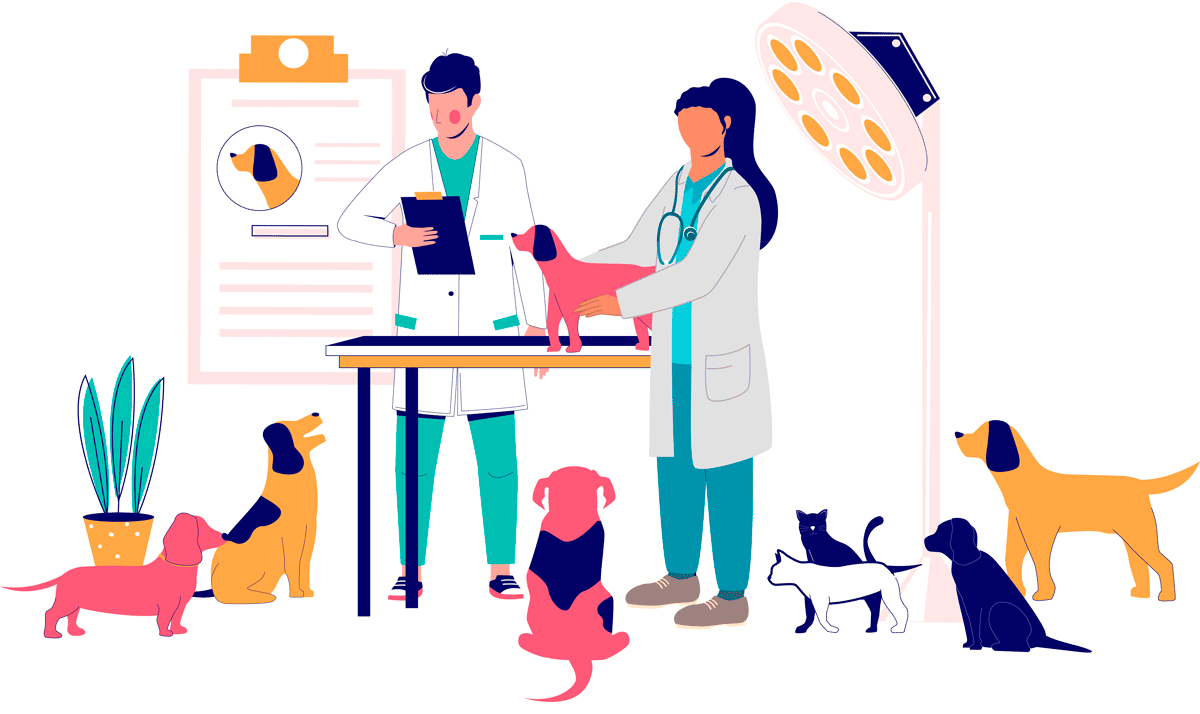Just How a Vet Oncologist Can Help Improve Your Animal's Lifestyle
Vet oncologists concentrate on the medical diagnosis and treatment of cancer cells in pets, playing a critical function in boosting their lifestyle. They develop personalized therapy strategies that attend to the unique requirements of each pet. Through advanced diagnostics and targeted treatments, these specialists intend to take care of symptoms properly. Nonetheless, the journey does not finish there. Checking out the full range of care alternatives exposes even more regarding how these professionals can make a significant distinction.

Recognizing the Role of a Veterinary Oncologist

Along with medical diagnosis, veterinary oncologists create complete therapy methods customized to the needs of each family pet. These approaches may include radiation treatment, radiation treatment, and surgical interventions, intended at not just extending survival however likewise boosting the overall quality of life. Moreover, they provide palliative care, focusing on pain administration and convenience for pets dealing with incurable medical diagnoses. By teaming up with animal proprietors, veterinary oncologists guarantee that pet dogs receive one of the most efficient and thoughtful care feasible throughout their cancer cells journey.
Tailored Treatment Prepare For Your Pet
When an animal is identified with cancer cells, developing a tailored treatment plan becomes important for addressing their unique demands and conditions. A vet oncologist very carefully examines the kind of cancer, its stage, and the overall health and wellness of the pet dog. This thorough assessment allows for the development of a personalized method that may include a combination of radiation, surgery, and chemotherapy treatment.
The oncologist also takes into consideration the pet dog owner's choices and way of life, guaranteeing that the strategy lines up with their goals for their pet dog's care. Veterinary Oncologist. Therapy plans are not static; they are regularly assessed and readjusted based on the pet dog's reaction and any kind of emerging demands. By focusing on customized care, vet oncologists aim to boost the effectiveness of therapies while maintaining the pet dog's quality of life. This tailored method fosters a much better understanding of the condition, equipping pet owners to make enlightened decisions concerning their beloved companions' health and wellness
Managing Signs and Negative Effects
Taking care of the symptoms and negative effects of cancer treatment is an essential element of veterinary oncology. Veterinary oncologists utilize a variety of strategies to minimize pain and boost the overall wellness of pets going through therapy. This may include using anti-nausea drugs to combat vomiting and loss of hunger, which prevail adverse effects of chemotherapy. Pain monitoring is also prioritized, typically entailing the prescription of analgesics tailored to the pet's particular demands.
In addition, oncologists might advise nutritional adjustments, incorporating top quality, easily digestible foods to sustain dietary consumption. Keeping track of blood work is important to find any type of damaging responses to therapy early, permitting timely interventions. Regular follow-ups enable the veterinary group to examine the animal's response to treatment and make needed adjustments. Through these detailed approaches, vet oncologists aim to boost the quality of life for family pets facing cancer cells treatment obstacles.
Palliative Care and Convenience Procedures
Palliative care plays an important function in improving the quality of life for pets detected with cancer cells, concentrating on convenience and psychological support as opposed to medicinal treatment. Veterinary oncologists focus on discomfort administration, guaranteeing that pets experience marginal pain during their illness. This consists of the usage of anesthetics, anti-nausea medicines, and other treatments tailored to specific demands.
Along with medicinal interventions, environmental adjustments can significantly boost a pet's high quality of life. Producing a calm, comfortable area with soft bed linens and easy access to food and water can alleviate tension. Nutritional assistance is additionally necessary; oncologists may recommend specific diet regimens that cater to the animal's preferences and needs.
Psychological support for both the pet dog and its proprietors is critical. Veterinary oncologists give assistance on coping techniques, assisting family members browse the emotional difficulties that go along with a cancer cells medical diagnosis. Inevitably, palliative treatment objectives to ensure that animals get the dignity and comfort they are worthy of.
Working together With Your Routine Veterinarian
Collaboration with a routine veterinarian is vital for enhancing the care of family pets with cancer, as this collaboration assures a thorough strategy to therapy and quality of life. The regular vet normally has an in-depth understanding of the family pet's case history, which is crucial when developing a treatment strategy. They can successfully communicate with the veterinary oncologist, making certain that all facets of the family pet's health are taken into consideration.
This cooperation enables collaborated treatment, which might include normal examinations, keeping track of negative effects, and changing medications as required. Routine vets can likewise provide psychological assistance to animal owners, helping them navigate the complexities of cancer cells treatment - Veterinary Cancer Specialist. By working very closely with veterinary oncologists, they can promote a seamless change between different kinds of treatment, guaranteeing that pet dogs receive one of the most effective therapies while maintaining their comfort and health throughout the process. With each other, they improve the total lifestyle for animals encountering cancer
Often Asked Questions

What Kinds of Cancers Cells Do Vet Oncologists Commonly Deal With in Animals?
Vet oncologists commonly treat various cancers cells in pet dogs, consisting of lymphoma, mast cell tumors, osteosarcoma, and soft cells sarcomas. These experts employ innovative analysis techniques and therapy choices to address the details requirements of each pet.
Exactly How Can I Prepare My Pet for a Vet Oncology Visit?
Preparing an animal for a veterinary oncology consultation includes gathering clinical records, keeping in mind signs, and preparing questions. Making sure the pet is comfy and calm throughout travel can likewise substantially enhance the general experience and consultation efficiency.
Exist Any Kind Of Alternate Treatments for Pet Dogs With Cancer?
Alternative therapies for pet dogs with cancer cells typically consist of acupuncture, natural medicine, and dietary support. These methods may enhance standard treatments, possibly improving overall health and giving supportive care during the family pet's cancer cells trip.
Just how Frequently Should My Family Pet See the Vet Oncologist?
The regularity of check outs to a veterinary oncologist normally relies on the pet's particular condition and treatment strategy. Regular analyses may be suggested every couple of weeks or months to keep track of progression and adjust therapies as necessary.
What Expenses Are Connected With Veterinary Oncology Providers?
Costs connected with vet oncology solutions can vary widely, including initial consultations, analysis examinations, therapy plans, and ongoing treatment. Veterinary Cancer Specialist. Pet dog proprietors ought to prepare for possible costs that show the intricacy and period of the therapy required
Veterinary oncologists specialize in the diagnosis and treatment of cancer in pet dogs, playing an important function in boosting their top quality of life. Many pet dog proprietors may not be acquainted with the ins and outs of veterinary oncology, understanding the role of a vet oncologist is important for managing cancer in animals. The oncologist also thinks about the animal owner's choices and way of life, making sure that the strategy aligns with their goals for their animal's care. By focusing on personalized care, vet oncologists aim to boost the efficiency of therapies while maintaining the pet dog's quality of life. By functioning closely with veterinary Pet Cancer Surgery oncologists, they can promote a seamless change in between different types of treatment, ensuring that family pets obtain the most effective treatments while keeping their comfort and wellness throughout the procedure.